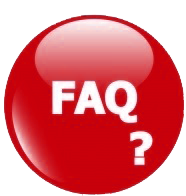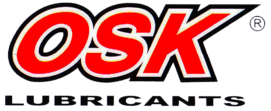What Are API Ratings ?
The API (American Petroleum Institute) provides information about each an every engine oil produced.
For example, the letter "S" in "SM" indicates the oil is appropriate for gasoline engines and "C" as in "CI-4" indicates suitability in diesel engines.
The higher the second letter after "S" or "C" indicates latest technology and enhancements in motor oil development.
For more details on API ratings and information, please go towww.api.org
The API (American Petroleum Institute) provides information about each an every engine oil produced.
For example, the letter "S" in "SM" indicates the oil is appropriate for gasoline engines and "C" as in "CI-4" indicates suitability in diesel engines.
The higher the second letter after "S" or "C" indicates latest technology and enhancements in motor oil development.
For more details on API ratings and information, please go towww.api.org
How Are Engine Oil Classified ?
Both API and SAE (Society of Automotive Engineers) recommends the tests required to define each category.
In Europe, vehicle OEMs is a major influence in engine oil tests and performance requirements.
Contract manufacturers must adhere to these tests and requirements to get the specific approval.
Both API and SAE (Society of Automotive Engineers) recommends the tests required to define each category.
In Europe, vehicle OEMs is a major influence in engine oil tests and performance requirements.
Contract manufacturers must adhere to these tests and requirements to get the specific approval.
Copyright OSK Dagangan Sdn Bhd 2013
FAQs
Why Do I Need To Change My
Engine Oil ?
Among the basic reasons are accumulation of contaminants. This can cause the effectivity of the engine oil in cleaning up these contaminants to drop and an increase in carbon, soots and acid that can damage the engine.
Another reason would be the depletion of additives which can cause corrosion, oxidation and acceleration of engine wear. This is why there is a recommended fixed interval for engine oil change to ensure that equipment is protected.
Engine Oil ?
Among the basic reasons are accumulation of contaminants. This can cause the effectivity of the engine oil in cleaning up these contaminants to drop and an increase in carbon, soots and acid that can damage the engine.
Another reason would be the depletion of additives which can cause corrosion, oxidation and acceleration of engine wear. This is why there is a recommended fixed interval for engine oil change to ensure that equipment is protected.
How Often Should I Change My
Engine Oil ?
It depends on the operation of a particular vehicle. Some undergo a much more harsh situations. For this reason, the OEM manufacturer usually spells out the service intervals in the vehicle manuals.
It ranges from 5,000 kms to 15,000 kms. Or sometimes even more with modern engines.
So it is best to go with vehicle manufacturer recommendation.
Engine Oil ?
It depends on the operation of a particular vehicle. Some undergo a much more harsh situations. For this reason, the OEM manufacturer usually spells out the service intervals in the vehicle manuals.
It ranges from 5,000 kms to 15,000 kms. Or sometimes even more with modern engines.
So it is best to go with vehicle manufacturer recommendation.
Why Is Engine Oil Important ?
The main purpose is to stop metal from touching metal. If metal parts touch, heat will be generated and intense heat will distort and cause engine failure. Engine oil creates a slick film between them to protect moving parts.
Engine Oil also reduces friction and prevents wear, allows for easy starting, seals tiny gaps between piston rings and cylinder walls, cools moving parts, keeps engine surfaces clean holds foreign deposits in suspension away from engine parts and prevents rusts and corrosion.
The main purpose is to stop metal from touching metal. If metal parts touch, heat will be generated and intense heat will distort and cause engine failure. Engine oil creates a slick film between them to protect moving parts.
Engine Oil also reduces friction and prevents wear, allows for easy starting, seals tiny gaps between piston rings and cylinder walls, cools moving parts, keeps engine surfaces clean holds foreign deposits in suspension away from engine parts and prevents rusts and corrosion.









Product Range
OSK Products
Torqgard Products
Other Products
OSK Products
Torqgard Products
Other Products
Who Are We
About OSK Lubricants
Our Quality
About OSK Lubricants
Our Quality
Is OSK Lubricant Oil Equal In
Quality To The Oil Marketed
By The Major Oil Companies ?
Yes. It is equivalent in quality as the oil sold by major oil companies. The only difference is the label and the price, which is usually cheaper
Quality To The Oil Marketed
By The Major Oil Companies ?
Yes. It is equivalent in quality as the oil sold by major oil companies. The only difference is the label and the price, which is usually cheaper
What Does "W" Mean In SAE
Grade ?
The "W" stands for winter and designated that the oil is suitable for colder climates. For tropical climates, like Malaysia, the lubricant with "W" will help to protect the engine during cold starts.
Grade ?
The "W" stands for winter and designated that the oil is suitable for colder climates. For tropical climates, like Malaysia, the lubricant with "W" will help to protect the engine during cold starts.
Does OSK Lubricant Follow The
International Standards Such As
API and SAE ?
Yes. OSK Lubricants follow the International Standards such as API and SAE and some other European and Japanese standards for automotive lubricants.
International Standards Such As
API and SAE ?
Yes. OSK Lubricants follow the International Standards such as API and SAE and some other European and Japanese standards for automotive lubricants.